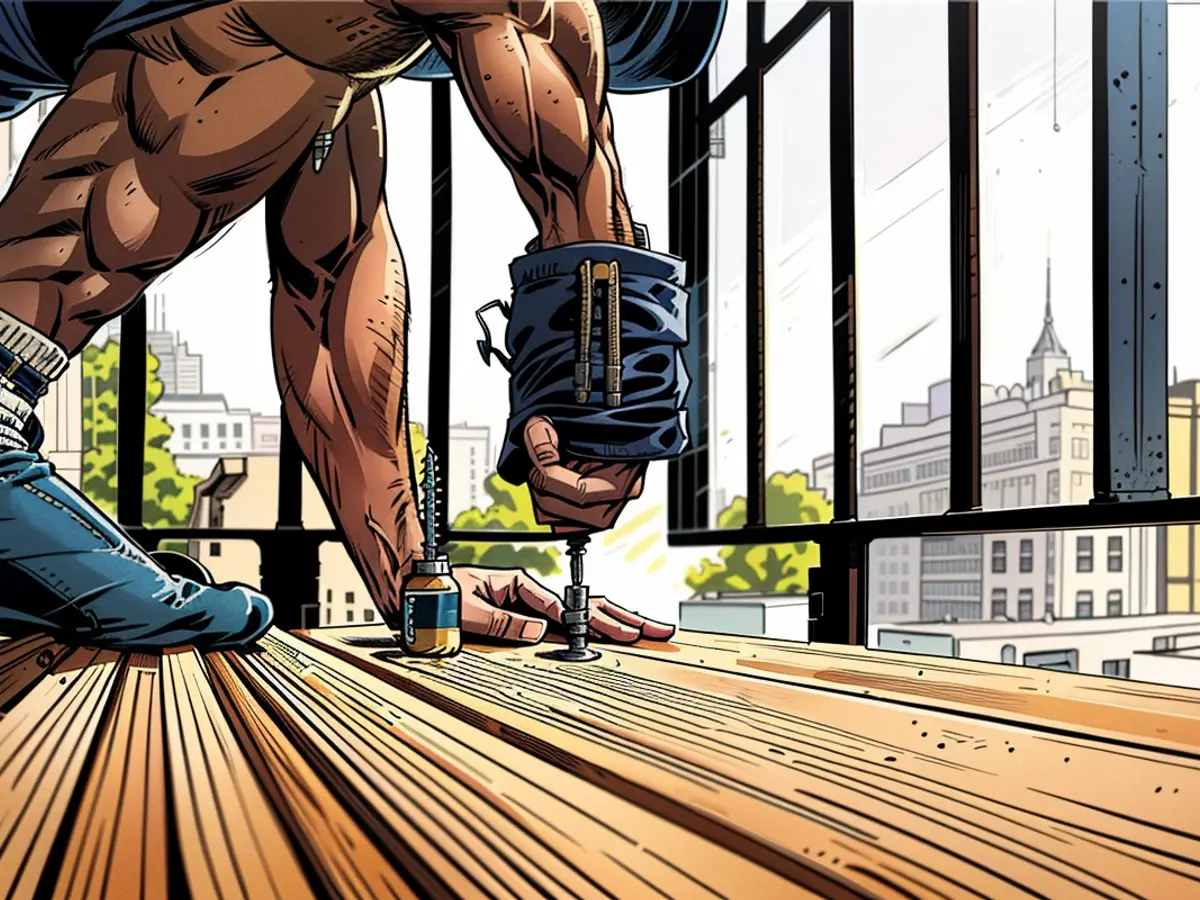Service providers find - Attention Warning: Recognizing dishonest craftsmen
For those ordering a craftsman today or even building an entire house, they will reach deeper into their pockets than they did a few years ago. Rising costs and a shortage of skilled labor make some go on a bargain hunt online. But be careful: The internet may promise quick solutions at low prices. Behind these offers could hide unskilled amateurs or unscrupulous businesses. However, those who ask the right questions and recognize warning signs can benefit from the wealth of information and offers available online.
Local Craftsmen Businesses Less Reliable
For instance, the consumer advice center in Düsseldorf frequently receives complaints about supposed craftsmen who advertise online but do not act professionally. "Complaints about local providers are – at least with us – less frequent," says Sebastian Dreyer, head of the consumer advice center Düsseldorf at the Consumer Center NRW.
Consumers are often lured in by unusually low online offers. The first warning sign, according to Dreyer, is the price: "If an offer sounds too good to be true, it probably isn't serious," he says. Extremely low prices can be a sign of poor quality or hidden costs. Therefore, in addition to an online search for recommendations from family, friends, and acquaintances, it is advisable to compare offers. Many a craftsman on site will undercut a cheap online offer, says Dreyer.
Pay Attention to Warning Signs
Classic signs of a serious crafts business include certificates from craft chambers, master craftsman certificates, and quality seals from trade associations and guilds. Relying solely on these credentials or seals, however, is not advisable. These details or seals could be falsified. To separate the wheat from the chaff, consumers should pay attention to a few, relatively easy-to-spot warning signs: First, they should check the imprint on the website. If it is completely missing or individual details such as a regional address or a phone number are missing, caution is advised.
Further warning signs include a lack of transparency, harassment, and unprofessional behavior: Serious craftsmen provide a detailed, written cost estimate and issue an invoice. Lacking written proof, offers should be declined. Serious companies also give their customers time to review and compare offers. They communicate professionally and politely, both on their websites and via email, phone, and in person. A good sign is also if a business has existed for a longer time, has good references and ratings, for example, at Google.
A helpful orientation aid in the online jungle are platforms for crafts and construction companies. Customers usually receive advice and a selection of various companies that offer the desired product or service. At a serious platform, there is no obligation to award a contract. The contract comes only after the consultation and directly between the crafts business and the customer, provided they have agreed.
Consultation is a Quality Feature
A particularly important quality feature when choosing a company is the consultation, says Dagmar Faltis, managing director of the Aroundhome platform, which connects homeowners with specialized crafts businesses for their home projects: "A good professional consultation takes some time." If the service provider talks more about the value and quick implementation than about professional questions, customers should at least be wary, says Faltis.
At some projects, a low price or quick turnaround are not the most important factors: "Imagine you're sitting on your new elevator and it suddenly stops – three days of service time are too long". In particular, for conversions to age-appropriate living, Faltis advises taking it easy: "Older people should consult independently and take their time: Take offers home first, discuss with family – and not let yourself be pressured by service providers".
When there's a warning signal, consumers, the police, and the intermediary platform agree: Advance payments should be avoided as much as possible. For instance, this is completely unusual in the solar industry, says Faltis. The police criminal prevention of the states and the federal government have a separate entry for advance payment fraud. Dreyer points out: Offers with advance payments should be avoided by consumers in general. According to the law, the penalty is generally payable upon acceptance of the work. A cost estimate should only be paid, if both contracting parties have explicitly agreed to it beforehand. Even if the company is serious, there is still the risk of a financial loss with an advance payment, if the business goes bankrupt.
Despite the popularity of online bargain hunting, beware of craftsmen who advertise poorly and lack professionalism, often leading to deception. Low prices can signal poor quality or hidden costs, so it's essential to compare offers and seek recommendations from reputable sources.
Furthermore, checking the website's imprint for missing details and assessing a business's transparency, professional behavior, and longevity are crucial warning signs to identify unreliable craft businesses. Beneficial online platforms can provide a variety of options, ensuring consumers can make informed decisions before committing to a contract.








